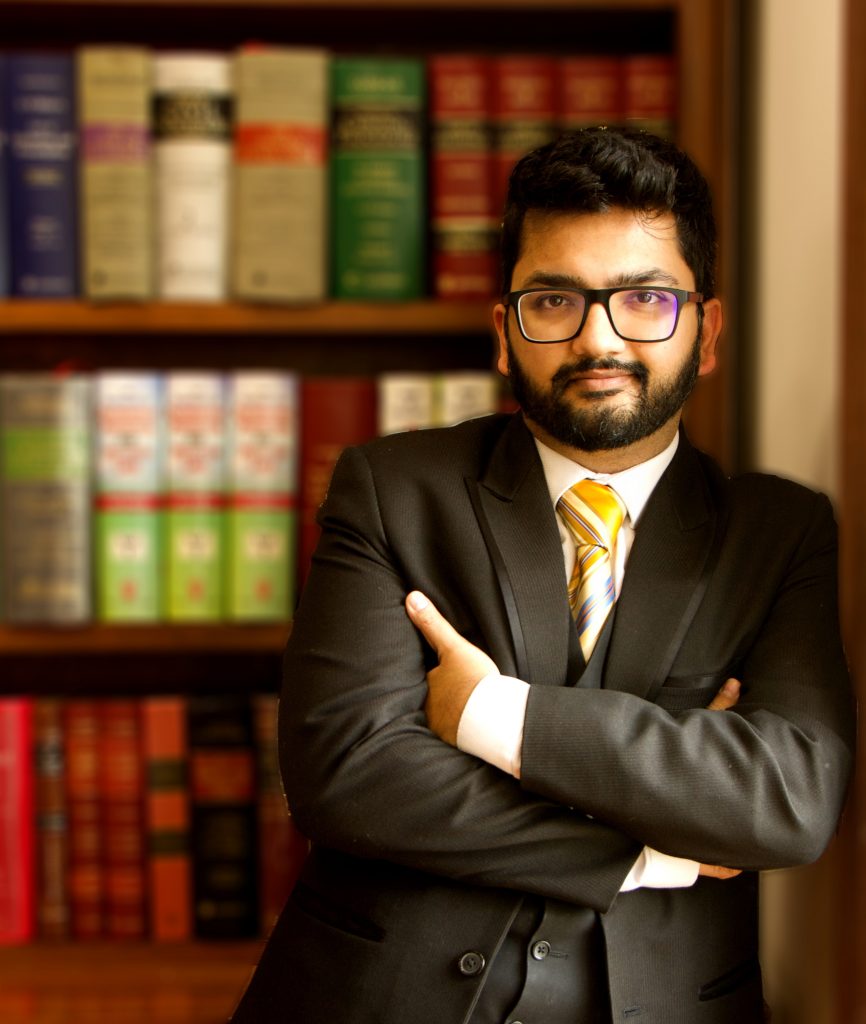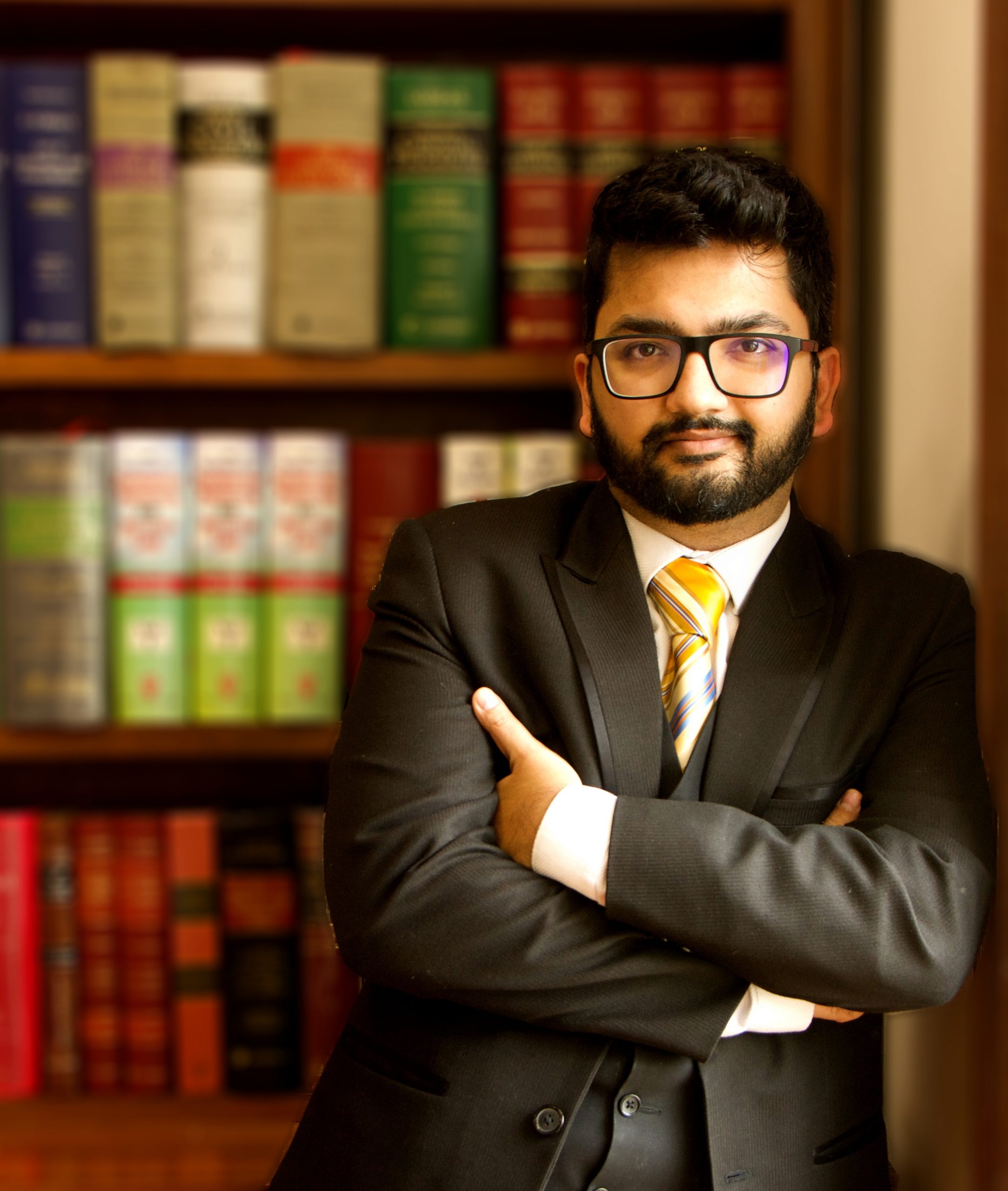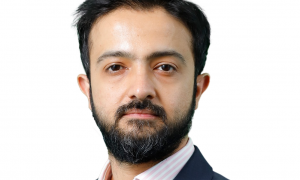This Interview has been published by Pragya Chandni and The SuperLawyer Team

Can you walk us through your journey from being a law student to becoming a founding partner at TKC Partners LLP? What pivotal moments or experiences shaped your career trajectory?
I would say my journey toward becoming who I am today began even before law school. As an Undergraduate at St. Stephen’s College I had the opportunity to explore not only where my interests lay academically, but also to begin to explore who I was, and who I wanted to become, as a person. I wasn’t always certain about pursuing law, at the time I was quite keen on exploring the dramatic arts. By my third year I was more set on my path towards the law. Reading History helped inform that decision.
That was followed by three years at CLC, Faculty of Law. I was not the most academically gifted student, nor, to be candid, the most hard-working. When I first joined I was not certain whether I was pursuing law because of the expectations of family, or because it was right for me. But I found myself drawn to certain courses, particularly Jurisprudence and Intellectual Property Law, which reinforced my decision to pursue law as a career.
After LL.B. I joined the Office of Mr. Gourab Banerji, Senior Advocate, who was Additional Solicitor General in the Supreme Court at the time. They say you never forget your first boss – and I certainly couldn’t. Mr. Banerji provided a nurturing and professional environment for a young legal professional to learn the ropes, and to make mistakes without fear or judgment. Many of the habits I try to inculcate in my Office even today I imbibed from my boss and my colleagues in that Chamber.
While practicing in the Courts in India has a thrill that cannot be matched, I had already begun thinking about pursuing higher studies in England. The drive had been fuelled over the years by visits to my family in the UK, and my father’s stories of his time at Oxford. The University of Oxford was my first choice. Having marginally missed a First Division I didn’t make it through. But sometimes life finds a way to give you what you need, even if it isn’t what you think you want. I joined Queen Mary, University of London for the LL.M. in Intellectual Property Law. That definitive year studying in the heart of London provided some of the most pivotal moments in my journey. Far from the nest, and challenged to break free from the shackles of rote learning, I got the opportunity to truly develop a zeal for the study of law, a joy for learning and analytical reasoning, and to dive deep into the study of Intellectual Property Law. Truly enjoying what I was learning pushed me to strive like never before, which happily culminated in graduating with Distinctions in each of my Courses. QMUL enlivened my passion for the law, and gave me some of my most endearing and enduring friendships. I can truly say that if not for that year, I would not find myself where I am today.
After my academic success at QMUL I was accepted into Oxford, which fulfilled a burning desire I had held in my heart for a quarter of my lifetime. I spent two years at St. Edmund Hall, University of Oxford pursuing the BCL and then the M. Phil in Law. Oxford helped me take my abilities and my ardour for academia to new levels. I had the opportunity to study under and with some of the sharpest intellectual minds I ever had the privilege of interacting with, both inside and outside of the legal realm. Though I probably did struggle with “imposter syndrome” at first, being intimidated intellectually pushed me to challenge and better myself. I was privileged to have this opportunity, and I did my best to take the fullest advantage of it. I was scared, I was excited – I had worked hard to get there and I hope it’s okay to admit that, despite all my anxieties, I was proud of myself. Reaching Oxford helped me believe in my capabilities and shape the confidence that I feel one needs to push oneself to the next level professionally. Not only did I meet my best friend at Teddy Hall, but I found the freedom and space to strive towards becoming my best self.
After returning from England, it was an adjustment being back in litigation in Delhi. The Oxford bubble had popped, and I had to find a way to transfer the skills developed during my time in academia to my professional pursuits. Despite offers and advice pushing me in other directions, I relished the chance to work under my father Mr. Salman Khurshid, Senior Advocate. His practice was varied, his grasp of the law disparate, and his academic bent familiar. Many days were spent having intellectual debates over lunch with all his juniors in the Office, and countless hours running from forum to forum – calling for familiarity with everything from Constitutional and Administrative Law to Competition and Anti-Trust. Exposure to so many different fields developed my general appreciation and grasp of law and, despite my specialisations, convinced me of the value of being a generalist – A jack of trades, master of none – but better than just the master of one.
After a few years the opportunity presented itself to join with dear friends and colleagues to set up our own firm – TKC Partners. Once again I found myself anxious, doubting myself and my potential – but the time had come to take the skills and abilities developed over the last decade and to push myself to the next step.
Pivotal moments in life rarely present themselves as such when they are before us. For most of us, in life the key moments are often gradual or imperceptible until we’re much further down our path. I think every step has culminated to bring me where I am today. While some may feel more definitive, none would be the same without those that have come before.
You’ve had significant experience in both litigation and arbitration, particularly in high-stakes cases before various forums, including the Supreme Court of India. What draws you to these areas of law, and how do you navigate the complexities they present?
From the very beginning I knew that I was more drawn to the Courtroom than the Boardroom. While Corporate Law offered more stability and remuneration, and many of my friends went in that direction, I knew my first love was litigation. Perhaps it is, as my friends and family often insist – that I am a born lawyer – eager to argue with anyone and everyone, about anything. Or perhaps it is as my father once told me when I had more whimsical fancies of being a stage actor – that litigation and theatre have many correlating and overlapping skills – oration, diction, the ability to command a room and capture the attention of your audience.
While litigation in India certainly has its share of drama, I think along with being an inherent performer, what draws me to dispute resolution is the thrill of argument, and the excitement and pace of litigation in India (though sometimes there is more excitement than necessary). Once I joined the profession I also had the opportunity to explore arbitration, and see many of the advantages it offers over litigation in an often over-burdened system.
Each area of law has its own thrills and its own obstacles. Navigating the complexities is often just about weathering the storm of backlog, managing the expectations of clients unfamiliar with the system, pushing your colleagues and contemporaries to help improve the system rather than take advantage of its shortcomings, and most importantly – patience. And in today’s world, with increasing globalization and the opening up of the “legal market” with the proliferation of international arbitration, we also need to be proactive about adopting best practices from other practitioners and jurisdictions.
As someone who has been deeply involved in intellectual property rights (IPR) practice, could you share some insights into the evolving landscape of IPR enforcement, both domestically and internationally? What are some of the key challenges you’ve encountered in this field?
Intellectual Property is an ever-evolving discipline. While its foundational concepts may not change, its application can rapidly adapt and develop in the face of technological advances, globalisation, the clash between the interests of developed countries and the needs of developing nations, and several other such factors. One of the most important developments however, especially for growing markets such as India, is cross-border recognition and enforcement, both for international brands that bring investment and economic growth into India, as well as for home-grown brands that have found an international market.
India has made great strides when it comes to the awareness, proliferation, recognition, and protection of IP rights. But we cannot rest on our laurels. Our infrastructure needs to catch up with the pace and requirements of market demands; we need to be proactive about facing the challenges of IP enforcement in the digital age; the level of expertise required from offices and the judiciary is not uniform across the country; and we need to ensure that a robust IP system does not create a space for IP bullying or takeover by larger vested interests against the freedom of creation and innovation.
Your time as a Research Assistant and then co-Author for your Chapter in the publication by the Office for the Harmonisation of the Internal Market (OHIM) involved studying the enforcement of intellectual property rights in the European Union. How has this experience influenced your approach to handling IPR matters in your legal practice?
The opportunity to co-Author a Chapter in European Case Law on Infringements of Intellectual Property Rights (Bruylant, 2016), published by OHIM (now known as the EUIPO) was an exciting opportunity to delve deep into a specific issue from an unfamiliar perspective. It helped acquaint me with some of the potential conflicts and challenges that proprietors and practitioners can face when it comes to the cross-border enforcement of IP rights.
It also helped me truly appreciate the impact and importance of Intellectual Property Law in commerce. Now known by a more appropriate name, the EU Intellectual Property Office used to be the Office of the Harmonisation of the Internal Market – which started with the remit to administer the new EU-wide unitary property right, the EU Trade Mark. Through the application and enforcement of various EU Directives, this Office played a vital role in breaking down several trade barriers in IP, showing how IP plays a pivotal role in creating, facilitating, and influencing cross-border trade and growth of mutual economies.
I think the experience has helped me develop a foundational expertise with the issues associated with such enforcement, which aids me in advising clients with multi-national offices or businesses, and also helps with a key aspect of IP advisory – litigation management and avoidance.
In addition to your legal practice, you’ve been actively involved in academia, including co-interviewing undergraduate law candidates at the University of Oxford. How do you balance your legal career with academic engagements, and what value do you see in contributing to legal education?
During my time at Oxford I was primarily dedicated to purely academic pursuits. But I also had the opportunity to carry on some of my practice, in an advisory capacity. The opportunity to co-interview undergraduate students, along with Professor Aileen Kavanagh, was interesting. It was funny to be on the other side of the table just a year after getting into Oxford myself – to try and gauge and appraise these young candidates and to make recommendations on whether they should be offered a place. This was perhaps the first time I felt the weight and gravity of the influence we in the profession can have on the future of the next generation of legal practitioners, jurists, and policy makers.
After re-joining the profession back in India I have attempted to make time to make myself available for similar opportunities through symposiums, lecture series, podcasts, etc. But balance is always the greatest challenge in the legal profession. I’ve not been able to make the time to take on more formal and structured academic roles, despite being approached a few times, as I’ve felt that I needed to provide more time to my role in growing my Firm. But it is always on my agenda to find ways to reach law students and young professionals when suitable opportunities present themselves – the worlds of academia and practice cannot be divorced from each other – this is a loss to both. I think it’s important that law students have the opportunity to know the realities of the legal profession, and to explore the profession before making the heavy commitments that it demands – this is only possible through access to practitioners who can help them gain a better understanding of law beyond their textbooks. The value in this is elementary – better, more well-rounded students will lead to a better, well-rounded legal profession.
Your publication on ‘State-State Arbitration and its Role in Entrenching the Rule of Law in the International Legal Community’ explores a crucial aspect of international arbitration. Could you elaborate on the significance of this topic and its implications for the legal profession globally?
First let me say what an honour it was to be given the opportunity by the PCA to co-author a Chapter in International Arbitration and the Rule of Law. It was such a privilege to be part of the PCA’s recognition of the work and contributions of the eminent and unmatched jurist and legal luminary – Mr. Fali S. Nariman – who sadly is no longer with us.
This piece, as indeed much of the collection, focussed on various aspects and examples of international arbitration and inter-state arbitration, and how they have influenced the development and entrenchment of the Rule of Law, a traditionally domestic principle, in the realm of international law – which is traditionally driven by the concepts of sovereignty and State autonomy.
Our article focussed on the role of interstate arbitration in promoting the rule of law, focussing on two significant PCA arbitrations – the Bay of Bengal Maritime Boundary Arbitration (between India and Bangladesh) and the South China Sea Arbitration (between China and the Philippines). An examination of cases such as these highlights several challenges that practitioners in the field of international law and international arbitration must contend with – the Rule of Law remains a somewhat contested concept in the international context, though there is a greater uniformity to the dimensions of the principles under domestic law. The nature of the disputes under these cases, and the stands taken by the Nation-States – both during and in the aftermath of these cases – highlights the challenges to international law, and the continuous necessity of the willing participation of States in maintaining its principles. Some of the lessons from the comparative analysis of these cases are particularly relevant for India today.
Collaboration seems to be a recurring theme in your career, from assisting Senior Advocates to co-authoring publications. How do you approach collaboration within the legal field, and how has it contributed to your professional growth?
‘If you want to go fast, go alone; if you want to go far, go together’. This traditional African proverb quite succinctly exemplifies my outlook towards law and the legal profession. In a fast-paced and often aggressive landscape, legal practitioners become hard-wired for competition – treating their practice as a zero-sum game. This can cultivate unproductive outlooks that can harm the system long-term.
I believe some of my greatest successes have come, not from side-lining or “defeating” competitors, but from finding opportunities to collaborate and cooperate. But often this is easier said than done. Collaboration requires trust, and as they say – once bitten, twice shy. Maintaining a collaborative attitude can be difficult, especially in the face of emulous elements. But patience, belief, and a little luck, can help one find genuine contemporaries to work and grow with.
This also informs the manner in which I aim to guide and advise Clients, encouraging them to look at conciliatory approaches, focussing on larger interests and benefits. Though Clients ca be similarly motivated/programmed – to see conciliation as a mark of timidness and weakness – but I have found that many stay with us because we show them that our approach focusses on their best interests, and often bears results in otherwise quagmired situations.
Finally, considering your diverse experiences and accomplishments, what advice would you offer to aspiring law graduates who are about to embark on their legal careers? What key principles or strategies should they keep in mind as they navigate the legal profession?
There may honestly be no end to the advice someone could dole out to aspiring graduates poised on the brink of starting their journeys in the profession. There is just so much to learn and experience. Some of it you may have guides and mentors that can prepare you, some you will just learn the hard way.
One thing I would emphasise is that law is a life-long pursuit of knowledge. You must constantly be open to learning and growing. Your early years are the best time to chase diverse and varied experiences – don’t hem yourself in early – there is plenty of time in life to “specialise”. One must also focus on foundational concepts, and don’t be afraid to grow slowly – chasing the “30 under 30” label can often lead to shortcuts or missed opportunities that could be hard to make up later. You must look inwards to define your image of success, don’t chase someone else’s.
You shape the system as much as it shapes you. It may be difficult, but always strive to better yourself, and those around you, and be slow to frustration. Surround yourself with people who push you to expand and grow. Take the best habits from your mentors, ignore the worst. You will have many unwelcome experiences, learn from them but don’t let them define you.
Get in touch with Zafar Khurshid-
























